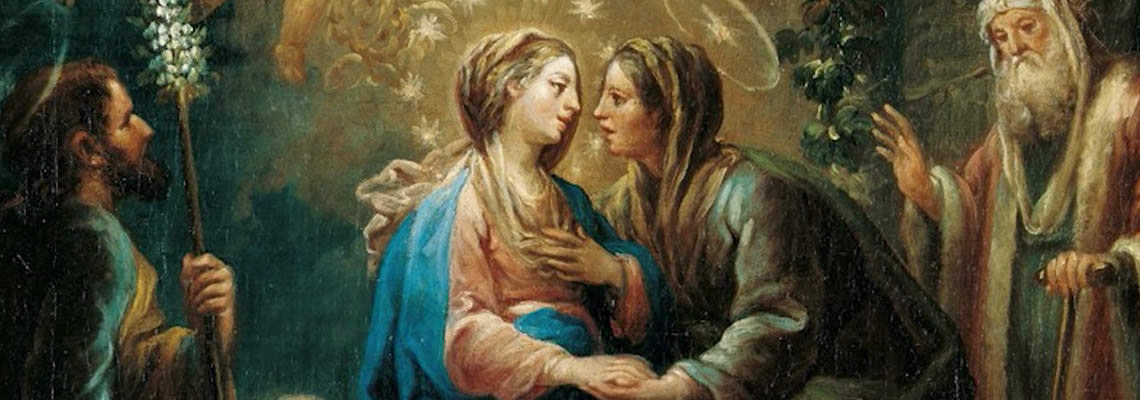May the Lord bless you with grace, peace, and health in Holy Spirit.
We reflect on Micah 5:1-4; Hebrews 10:5-10 and Luke 1:39-44. We celebrate the Fourth Sunday of Advent.
An old lady noticed a razor blade cut on the face of a priest as she entered for the Sunday Mass. “What happened? How did you cut your face?” she asked. “Well, I was thinking about my sermon this morning while I was shaving,” the pastor replied. “I guess I wasn’t concentrating and cut myself in the process.” “That’s too bad,” Ms. Jones replied. “Next time you should concentrate on your shaving and cut your sermon.”
The fourth Sunday of Advent we meditate on the peace. The fourth candle of Advent is called the “Angel Candle” and symbolizes peace. The readings of today take us closer to the Christmas celebration.
A story is told about Beethoven, a man not known for social grace. Because of his deafness, he found conversation difficult and humiliating. When he heard of the death of a friend’s son, Beethoven hurried to the house, overcome with grief. He had no words of comfort to offer. But he saw a piano in the room. For the next half-hour, he played the piano, pouring out his emotions in the most eloquent way he could. When he finished playing, he left. The friend later remarked that no one else’s visit had meant so much.
The prophecy of Micah reminds that God’s standards are different from human. Bethlehem, even less known and popular among the noble and royal, yet God anointed David a king of Israel, the younger, the less distinguished, Abel instead of Cain, Jacob instead of Esau, Joseph, the youngest among Jacob’s sons. God brings His Only Jesus from the House of David by Joseph.
Peace comes from least expected people and places is the first reading. In the second by doing the will of God, we attain peace. The Gospel insists that a timely visit in love brings peace.
True peace comes when we value people as they are however poor, the vulnerable and less popular they might be.
Our Gospel reading recalls Mary’s actions after the announcement of Jesus’ birth by the angel Gabriel. Mary goes to visit Elizabeth, her cousin, who is also with child.
Are we loving others expecting something? Love without expectation like that of Mary.
Peace comes by sharing our joy with someone. Mary brought God’s peace not only in Her womb, the Prince of Peace but Her humble visitation, even after hearing the Good News that the Son of God would be born through Her.
Recognizing God’s abiding presence brings peace. The leaping for joy within the womb of Elizabeth is the vivid recognition of the presence of the Lord by the unborn child, John the Baptist.
Peace comes by believing and living the Word of God. Mary was the first disciple of the Lord who believed and lived the Word of God.
Mary is a model and symbol of the Church. May we be like Mary, open and cooperative in God’s plan for salvation.
Whenever we run to help the other in need brings peace. Mary knew how Elizabeth needed a helping hand. She offered that timely help to her.
Those who love without expectation, they bring so much peace. Mother Mary is the example. Mother Mary loved without expecting anything in return!
Behold the servant of the Lord. Do to me according to your word. He did not expect anything from the angel then.
Marriage at Cana, she expected nothing from the family. She did not expect anything from Elizabeth then!
When she stood near the Lord on Calvary asked to be the mother of all, she did not expect anything.
As St. Francis of Assisi prayer, so we to join the chores: “Lord make me an instrument of peace.” May the Lord bless you.


